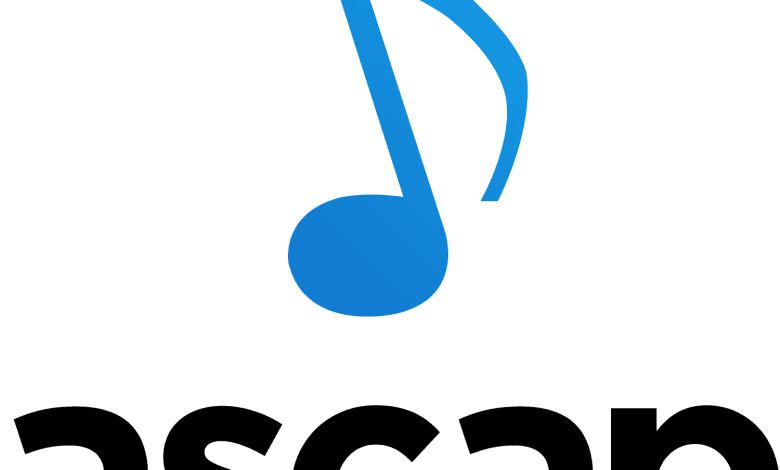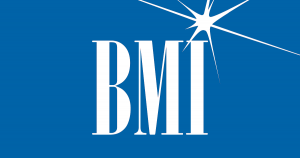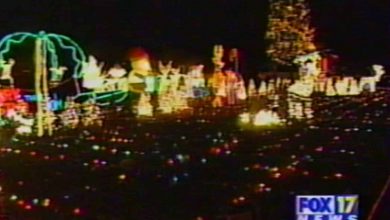Music Licensing
Why can’t this be easy? But there is a way.

Let’s chat about music for a moment. Music and Christmas go hand-in-hand just about as much as eggnog and rum go in mug-and-glass. A growing number of Christmas decorators (both commercial and noncommercial) are enhancing their displays with music, either in the form of pleasant background atmosphere or a dazzling synchronized light show. In fact, many of our companies are built on the very idea of synchronizing stellar lighting choreography (sequences) to music. Music brings with it a deep sense of tradition, emotion, and legal confusion. What? Yes, PlanetChristmas forum members have spent years debating the question of music licensing, who needs it, when, and sometimes why.

Navigating the legal music industry is a complicated endeavor. Unless you are like that one family on The Great Christmas Light Fight that composed and recorded their own song, you are using someone else’s intellectual property and there are entire legal departments dedicated to cutting through the complexities of music creation, distribution, and licensing. While much of that does not apply to us decorators/designers directly, it helps to understand the base from which our legal footing is built. Musicians create art in the form of music and deserve to be paid for it. Often a single piece of music has multiple writers, lyricists, publishers, recording artists, and recording studios attached to it and everyone wants a piece of the pie they helped bake.
But Jeffrey, I bought the CD, don’t I own the song? While you do own the physical compact disc, the copyright and intellectual property of the song itself is still held by the artist. Much like a software program (ala Light-O-Rama Sequence Editor), the purchase of a CD allows you to enjoy the artist’s work personally but does not include the right to reproduce the music for public enjoyment. Just as it is illegal to buy a CD and burn a bunch of copies (to resell or give away), it is illegal to publicly play music without a license. ASCAP states that, “According to the copyright law, a public performance occurs at any place open to the public, or where a substantial number of persons (outside the normal circle of family and friends) is gathered.” The copyright law referred to is Title 17 USC, which specifically lists performance rights in section 106(4).
Some music compositions are “public domain,” such as Deck the Halls which was written in the 1800s but “public domain” only applies to the sheet music, not the recording. Even though Deck the Halls is public domain, Michael Buble’s recording of it is not.

There are so many types of music licenses (Mechanical, Master, Synchronization, Public Performance, Print, Blanket, Dramatic) that it can be hard to navigate. Based on the list, which license do you think is the one we should focus on? If you said Synchronization, you’re surprisingly incorrect. I will come back to ‘sync’ licenses later but for now, let’s focus on what a Christmas display needs, which is a Public Performance License.
Luckily for most of us, there is a simple solution in the form of ASCAP and BMI. The American Society of Composers, Artists, and Publishers (ASCAP) and Broadcast Music Inc. (BMI) both offer blanket “public performance licenses” available at www.ASCAP.com and www.BMI.com. This license gives you permission to play any music in the ASCAP (or BMI) library. Fees for these licenses vary depending on the size and type of your venue, the length of time you need the license and, in some cases, the number of audio speakers in your setup. ASCAP streamlines the process on their website, which allows you to quickly fill out a licensing request form tailored to your venue.
Most public performances of copyright music require a license but there are a few exceptions such as performances in the context of worship (in a place of worship) and face-to-face teaching in a non-profit educational institution. It’s best to be safe and call ASCAP to confirm whether you need a license because the fines for infringement are a minimum of $750 for each song you play illegally plus legal fees. ASCAP is an organization dedicated to supporting the artists and they will come after you. For example, a school band once performed a song for a music festival at Disneyland (that was composed by a friend of mine) without a license and within days the school was fined for non-compliance.
Is there ANY way I don’t have to pay? Yes! The silver lining comes on Page 10 of the “Using Copyright Music” document on ASCAP’s website which says, “Purely non-profit performances may be exempt if (1) there is no direct or indirect commercial purpose; and (2) there is no payment to the performers, promoters or organizers; and (3) there is no admission charge, or if there is a charge, all proceeds after deduction of costs are used exclusively for educational, religious or charitable purposes.” Now I am not a lawyer (and I always recommend speaking with an entertainment/music attorney or at least calling ASCAP to confirm) but based on my personal conversation with an ASCAP representative, a music attorney, and this paragraph, a FREE Christmas display put on by a family at their home does not need an ASCAP license. Disclaimer: Law is never black and white. The above paragraph says “may be exempt” which gives both you and ASCAP a legal leg to stand on if the lines of legality are blurred. My own discovery of this paragraph came from my due diligence as I attempted to get a license for a fiscally-sponsored non-profit, free Christmas show.
Ultimately, what does this mean for commercial Christmas decorators? While the responsibility to get a public performance license ultimately falls upon the venue you are decorating, it is important to ensure your legal contracts clearly state that you, as the decorator, are not responsible for acquiring the appropriate licenses for the venue (or you risk your client trying to sue you after they get sued). In addition, knowing this information adds value to your business as you can ease the holiday stress of your client by showing them how easy it is to get a license during the Christmas season. In many cases, shopping centers and malls already have an annual public performance license through ASCAP or BMI and your work will fall under that umbrella. Be sure to ask though, because the fines for non-compliance are hefty.
One last thing, why does YouTube take down videos of my Christmas display? Didn’t you just say my home-based, free Christmas display does not need a license? This is where a ‘synchronization’ license comes into play. A synchronization license is required whenever copyright music is coupled with visual media (audio-visual); usually this refers to TV and Film. Some could argue that a dancing Christmas display could be construed as “visual media” but I argue that case-law clearly points to ‘sync’ as designed for TV, film, and audio recordings. Because sync licenses are not distributed by ASCAP (nor BMI) and are much harder to acquire, we want to keep arguing that sync does not apply to us. To get a sync license, you must receive permission from each individual publisher of each individual song you want to use. Imagine trying to do that for a 20-song Christmas display? A public performance license is much easier to acquire and, personally, I believe fits the bill of what our industry does. Having said that, the moment you film your Christmas display, that film is now subject to ‘sync’ licensing if you want to use it outside of your organization, such as on YouTube. Some companies have relaxed their stance on what can and cannot play on YouTube, but often times you will see YouTube mark your video as “contains copyright material,” at which point it is up to the copyright owner whether or not to take the film offline.
Music and Light go hand-in-hand in our Christmas decorating and while we cannot ignore the necessity of music licensing, we don’t need to fear its complexities thanks to ASCAP and BMI. With knowledge of public performance licenses under our belt, we can focus on what we truly enjoy, decorating the world one tree at a time to bring light and joy to families across the globe.
About Jeff Holmes:
Jeff Holmes is co-owner of Lights, Music, Magic!, a consulting and design company that specializes in large-scale commercial holiday displays. L.M.M! offers turn-key light show systems and designs for high-traffic venues wishing to add sparkle and magic to their holiday offerings throughout the year. They also offer support services to manufacturing and decorating businesses in need of light show design, project management, and programming services. www.LightsMusicMagic.com
This article was included in the November 2015 issue of PlanetChristmas Magazine.
By Jeff Holmes




